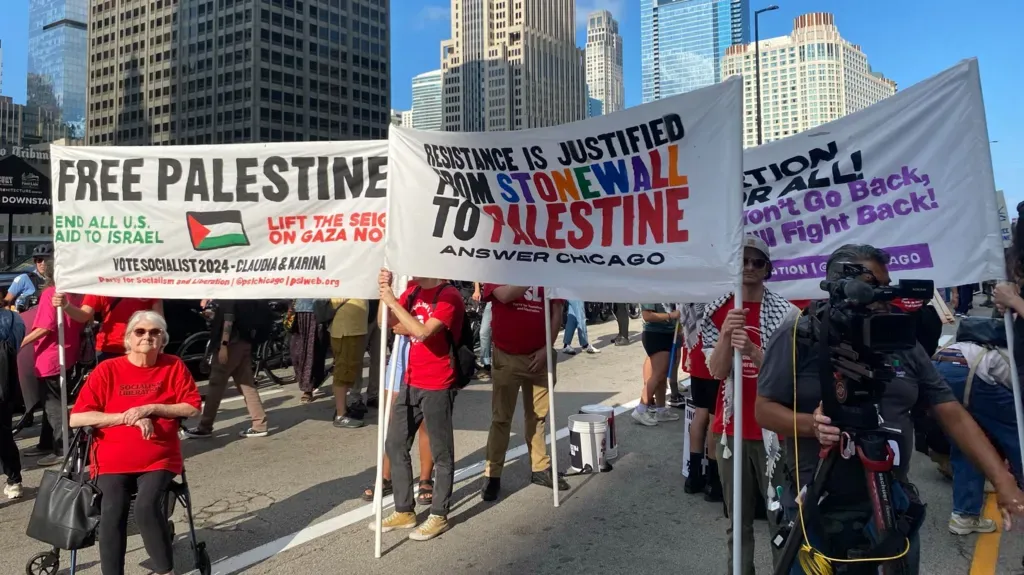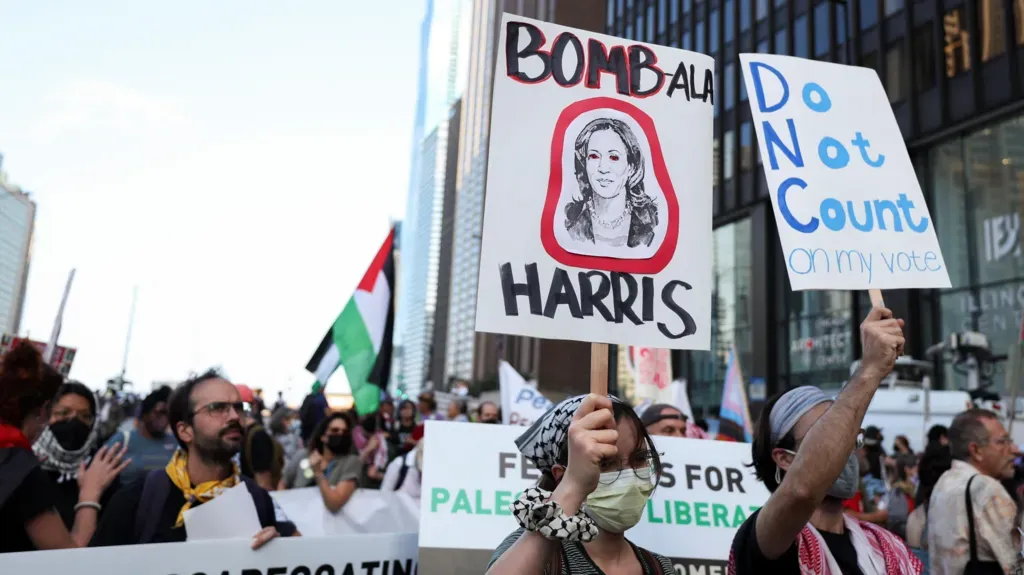The Democratic National Convention (DNC) begins this Monday in Chicago, a pivotal event intended to celebrate Kamala Harris’s nomination as the Democratic presidential candidate. However, the convention faces potential upheaval due to significant protests concerning the Gaza conflict. These demonstrations, driven primarily by dissent within the Democratic Party’s left wing, threaten to overshadow the convention’s intended unity and celebration.

Anticipated Protests Over Gaza Conflict
Pro-Palestinian Activists Mobilize
As the DNC unfolds, thousands of pro-Palestinian activists are expected to converge near the convention site. Their aim is to voice strong opposition to President Joe Biden’s policies regarding Israel and Gaza, policies which Vice President Kamala Harris has consistently supported. This show of discontent highlights a deepening rift within the Democratic Party over its approach to the ongoing Gaza conflict.
Pro-Israel Counter-Protests
In response to the pro-Palestinian demonstrations, pro-Israel groups have organized their own events, including a notable “hostage square.” This initiative aims to bring attention to the plight of individuals currently held captive by Hamas. Additionally, families of these hostages are anticipated to participate in the convention, adding another layer of intensity to the event.
Kamala Harris and Policy Ambiguity
The Convention’s Key Moments
The four-day DNC will feature high-profile speeches from President Biden, former Secretary of State Hillary Clinton, former President Barack Obama, and his wife Michelle Obama, among others. The convention will culminate on Thursday with a primetime address by Kamala Harris, which is set to be a major highlight, viewed by millions across the country. Harris’s speech is expected to be closely scrutinized, especially regarding her stance on the Gaza conflict.
Harris’s Policy on Gaza
Kamala Harris has yet to provide a definitive policy on the Gaza conflict. Although she has advocated for a ceasefire and acknowledged the high civilian casualties, she has not supported more stringent measures, such as an arms embargo against Israel. This position has been a point of contention, particularly among progressive Democrats who are pushing for a more forceful response.
Impact of the “Uncommitted” Vote
The Discontented Delegates
The dissatisfaction with the Biden administration’s handling of the Gaza conflict was reflected in the Democratic presidential primary earlier this year, where over 750,000 voters chose to vote “uncommitted.” Despite a slight decline in campaign energy, this vote remains significant, especially in swing states like Michigan.
Efforts to Influence Policy
A relatively small group of delegates, representing the “uncommitted” vote, will attend the convention. Although they are outnumbered by the more than 4,500 delegates backing Harris, they represent a substantial portion of dissatisfied voters. These delegates plan to use the convention to press for stronger action on Gaza. Samuel Doten, a Democratic organizer and “uncommitted” delegate, remarked, “We are challenging a status quo U.S. policy of the past 40 years, and it won’t shift overnight.”
Several delegates hope to convince fellow Democrats to endorse a letter demanding that Harris and the party support a ceasefire and an arms embargo against Israel. They emphasize that their goal is not to disrupt the convention or the election, but to advocate for policies that align with the views of a significant portion of Democratic voters.
Diplomatic Pressures and Future Implications
Ceasefire Talks and Political Context
The DNC coincides with crucial U.S.-mediated ceasefire negotiations, which the White House has described as being in their “final” stages. This timing adds complexity to Harris’s position, as she must balance the administration’s stance with the demands of progressive Democrats. The outcome of these negotiations could significantly impact Harris’s policy decisions and political standing.
Expected Policy Continuity
Close associates of Harris suggest that a significant policy shift is unlikely. Halie Soifer, who served as Harris’s national security adviser in the Senate, stated, “There is no daylight between Harris’s views and Biden’s.” This implies that Harris’s stance on the Gaza conflict will remain consistent with the current administration’s policy.
Stay Updated on the Israel-Gaza Conflict
For ongoing updates and detailed coverage of the Israel-Gaza conflict, visit our dedicated section here. Stay informed about the latest developments and their global implications.


